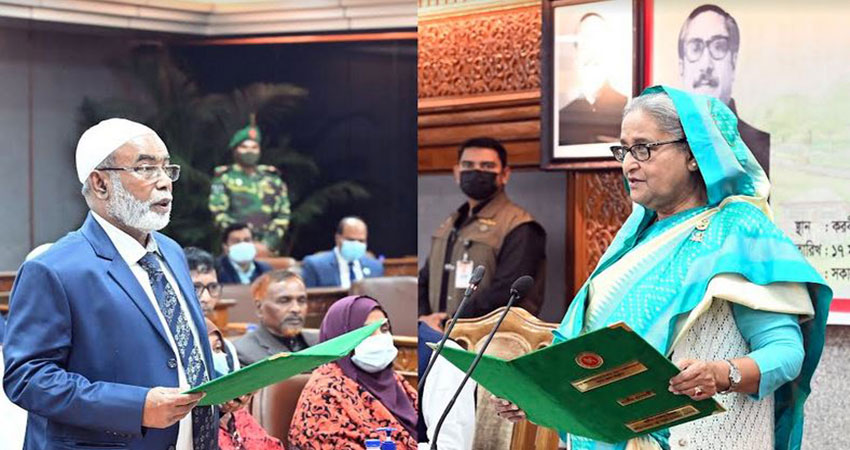Electricity demand is rising in the morning as a result of the government's decision to bring forward the office times by an hour, according to State Minister for Power, Energy and Mineral Resources Nasrul Hamid.
He believes "a balance can be achieved" if the peak hours for electricity consumption shift to the daytime in light of the ongoing rolling power outages aimed at conserving energy resources.
Bangladesh has decided to cut back working hours at government offices, autonomous institutions and banks, starting Wednesday, amid a lingering energy crisis.
From Wednesday, government offices and autonomous institutions will remain open from 8 am to 3 pm instead of the usual 9 am to 5 pm period.
Meanwhile, banks will stay open from 9 am to 4 pm, instead of the regular 10 am to 6 pm working hours.
In addition to bringing forward the working hours, educational institutions have also been ordered to enforce a two-day weekly break.
Speaking to reporters after new timetables came into effect, Hamid said, “The trend we saw earlier was that the power demand increased from 10 am. Now, we're seeing the demand rise from 9 am."
“At the moment, DESCO's requirement has gone up by around 1,000MW. The peak hours for DESCO and DPDC within the city usually start around noon, but that is changing."
"We want the peak hours to shift from the evening to the daytime. Then, we can strike a balance between daytime and evening consumption."
Peak hours are the times during which the electricity demand is at its highest level. Traditionally, the demand for electricity in Bangladesh peaks between 5 pm and 11 pm.
“We want to make sure that there is an uninterrupted power supply to irrigation pumps for the next 15 days from midnight. I think it will be possible," he said.
The Russia-Ukraine has destabilised the international fuel market and the increased costs of oil imports have forced Bangladesh to cut back on power generation, resulting in regular power outages or load-shedding.
Asked how long the power conservation measures will last, the state minister said, “We are working on reducing the power outages. We were forced to introduce load-shedding due to fuel and gas shortages. Now, we are trying to find a balance."
With the new austerity measures kicking in, Awami League leader Obaidul Quader said the load-shedding regime should also be extended to ministers' homes, if necessary.
Asked about Quader's remarks, Hamid said, "Everyone is experiencing load-shedding. No one's been left out.”



















